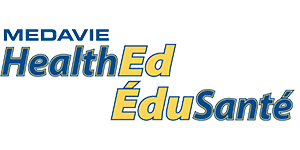ACP Course Description
Module 1 Foundations of Paramedicine
With this module the student will become familiar with the applicable and relevant legislation pertaining to personal and patient safety, confidentiality and paramedicine. The student will also examine concepts of problem solving to help with their decision process when presented with ethical dilemmas in the field. During this module the study will begin to build the foundation of anatomy and physiology with an introduction to the human body.
Module 2 Patient Assessment
Advanced Care Paramedics are presented with many situations and have to use their clinical assessment and critical thinking skills in a variety of situations and patient presentations. In this module the student will learn the core components to assess patients based age and situation. The student will begin to explore critical thinking concepts and adapt their assessment based on the patient’s presentation as well as understand the body’s response and the homeostatic mechanisms. The paramedic student will also acquire the ability to determine the acuity of patients under the CTAS guidelines and documenting all of the findings.
Module 3 Pharmacology
As an introduction to pharmacology this module will provide the ACP student with the foundations of knowledge in respect to the medications used in the prehospital setting. Looking at the pharmacokinetics and pharmacodynamics of medications the ACP student will learn how the body uses the medications being administered. The pharmacology will continue to be discussed and built upon within other modules as they pertain to specific disease, injury and treatments.
Module 4 Haematology, Infectious Diseases and Anaphylaxis
With this module the student will become familiar with various aspects of hematology, infectious disease and anaphylaxis. This will include an exploration of the physiology and pathology of these systems and the treatment options available for the Advanced Care Paramedic.
Module 5 Neurology and Endocrinology
Neurological and Endocrine disease is the focus of this module; neurovascular and endocrine anatomy and physiology, as well as pathophysiology, are covered. Students learn more about assessing and managing the stroke, seizures, diabetes and other diseases that affect these systems.
Module 6 Respiratory Emergencies
Airway management is a key skill for all levels of prehospital care providers. During this module the students learn about the respiratory pathophysiology, how to assess a patients airway and provide the appropriate medications. A practical lab is key to assisting the students in learning their new skills with the ultimate aim of developing advanced airway control techniques.
Module 7 Cardiovascular Emergencies
Cardiovascular emergencies are life threatening and can be of a time sensitive nature. The Advanced Care Paramedic must be able to recognize the signs and symptoms and diagnose quickly to avoid delay in treatment and to minimize morbidity and mortality. In this module the student will review the practitioners approach to these disorders and their treatments for ACS, arrhythmias and cardiac arrests. In addition the ACP student will review common medications for patients with preexisting cardiac disease and the medications used for the treatment modalities currently being used nationally.
Module 8 Musculoskeletal, Integumentary and Trauma
The paramedic student will be exposed to the principles of trauma care in the prehospital setting while understanding the kinetics of trauma to help aid in their assessment, treatment and transport of the injured patient. The student will also look at the use of triage and Incident Command while evaluating an MCI scene. Recognizing the nature of the profession the student will also look at stress, CISD and resources available to them to maintain a healthy state in an ever stressful environment.
Module 9 GI/GU, Environmental and Toxicology
With this module the student will become familiar with the assessment and management of the patient presenting with injury or illness involving the gastrointestinal, genitourinary systems, exposure to adverse environmental conditions or exposure to toxic substances.
Module 10 OB/Gyn and Neonatal
Focusing on neonatal and obstetrical assessment and management this module covers reproductive anatomy, gynecology and obstetrics. Students also learn about neonatal advanced life support.
Module 11 Special Situations
With this module the student will become familiar with specific patient populations and explore the challenges associated with these particular demographics. In this module the student will also become familiar with the special needs and challenges of dealing with patients exposed to chemical and biological warfare.
Module 12 Introduction to Other Levels
The student will become familiar with the expanding roles in paramedicine in Canada and other countries. The student will also be introduced to a number of advanced procedures and treatments being used in the hospital and prehospital setting. Students also learn about aeromedicine and how it relates to scene response, interfacility transport and repatriation transports.
Module 13 Short Programs
This module outlines all of the short programs delivered and obtained by the paramedic student during this program. The courses are delivered throughout the program. These courses include:
- Exploring Medical Language
- Advanced Cardiac Life Support
- Pediatric Advanced Life Support
- Geriatric Education for Emergency Medical Services
- Pediatric Education for Prehospital Professionals
- Workplace Hazardous Materials Information System
- Canadian Triage and Acuity Scale Program
- Basic Life Support (BLS) – Heart and Stroke
- Harassment in the Workplace Workshop
- Airway Management in Emergencies
- Prehospital Evidence Based Practice

